- Home
- Carolyn Keene
Captive Witness Page 10
Captive Witness Read online
Page 10
When Nancy arrived back at her room, she saw that the message light was blinking on her telephone. She called the front desk and the clerk promptly read her a cablegram from her father confirming that Kurt Kessler would arrive in Vienna that night via a connecting flight from London.
Nancy had barely enough time to phone Professor Bagley and arrange to drive with him to the airport and pick up the film director.
“You know, Dr. Bagley,” Nancy said when they were finally on the way, “it’s hard for me to remember any mystery I’ve ever worked on where I had so much responsibility for the lives of other people.”
“I know how you feel,” the professor replied. “I have very mixed feelings about meeting this extremely talented man. Tonight and tomorrow may be his last free hours unless we succeed.”
Despite their trepidations, both Nancy and Dr. Bagley maintained happy expressions as they watched the director cross the terminal from the customs area.
“Mr. Kessler,” Nancy said, walking toward him with her hand outstretched, “I was sure I’d recognize you right away.”
The man smiled. “And I would know you anywhere, Miss Drew, since I have spent so many hours in your father’s office surrounded by your photographs dating back to childhood days.”
Nancy blushed crimson. “Oh,” she said, “Mr. Kessler, may I present Professor Bagley, the man who was given the job of transferring the children and who asked me to help.”
As the director and the professor exchanged greetings, Nancy studied Mr. Kessler’s face. She was saddened to see how very old he seemed.
Early newspaper photographs revealed him to have been extremely handsome as a young man. Now, though he was only middle-aged, his good looks had been replaced by deep lines etched by pain on weather-beaten skin. His eyes, which were naturally deep-set, were even more sunken; and his hair was grayish-white and quite thin.
He did all he could, however, to conceal his painful memories. He spoke with enthusiasm, and the soft, sad eyes were still capable of flashing with humor. As they walked back to the car, Nancy listened to his conversation with Dr. Bagley, thinking of Kurt Kessler weeping, when he was alone, for the things he had shown in Captive Witness.
I just have to find his film, she thought.
As the threesome rode back to the hotel, Nancy felt compelled to tell Mr. Kessler, “I’m the one who’s guilty for getting you involved in all of this. If we fail to bring those children out and you are forced to go back across that border, I don’t know what I’ll—”
The director interrupted quickly. “No, Nancy. Never blame yourself. With or without you, the same things would have happened. The only difference now is I have you on my side. ”
“What bothers me,” Dr. Bagley said, “is that even if we do manage to free the children, what’s to prevent your enemies from trying to stop other people who want to leave and demanding you in exchange?”
“Look, anything is possible,” Kessler replied, “but I think this is a single attempt. If they get me, they win; but if we get the orphans instead, there will be so much publicity that no one would dare trouble me again. By then, they will have been exposed and who would believe otherwise?”
“They want the world to see Kurt Kessler crossing the border voluntarily,” the professor muttered.
“Of course,” the director said. “They will probably have a crew there to film it, and with such a film, they can issue all kinds of propaganda—how the Americans forced me to make Captive Witness, how it is nothing but lies. ”
“So you don’t think they intend to kidnap you?” Dr. Bagley asked.
Kessler shook his head. “No. Kidnapping me would serve no purpose. They want me to give up freely. ”
“It’s so unfair and cruel,” Nancy commented.
“On the contrary, Nancy,” the film director said, “it’s insane.” Then his voice dropped. “What I dread most is that if I cross the border, I will find that my film has been destroyed.”
He lapsed into a brooding silence which remained unbroken until the professor spoke.
“Mr. Kessler, I promise you that under the plan we’ve worked out there would be no way for them to get you across the frontier unless the film and the children are turned over.”
“Besides,” Nancy added, “we already know they don’t have the orphans because just this evening we met Emile Popov, the man who is hiding them in Hungary. ”
Kurt Kessler sighed happily. “There are so many exceptional people in this world. America has produced you and Dr. Bagley, and now you tell me about this Popov.”
The discussion faded as the hotel came in sight. Nancy persuaded room service to serve a late snack in the professor’s room where introductions were made to Eric and Mr. Popov. They excused themselves quickly and went to Ned’s room next door, leaving the trio to talk alone for another hour. Nancy outlined the plan involving the decoy group and a strike team to accomplish the final mission.
“You are a marvel,” Kessler said admiringly, “and if we all survive tomorrow, I am going to make a film about Nancy Drew.”
The young detective floundered for an answer. “You may change your mind after you see me in action,” she said, then realizing that wasn’t quite what she meant, added quickly, “Of course, I do feel confident about—”
“I know you do,” Mr. Kessler interposed gently, “and I am very grateful to you.”
Without any further discussion, Nancy said good night and went to her room. At eleven the next morning, she heard a knock at the door. It was George wearing the titian wig, Nancy’s dress, and the floppy straw hat. Standing right next to her was Ned. Their hands were clasped and they were gazing deeply into each other’s eyes—or as deeply as they possibly could through their enormous sunglasses.
Nancy had to put her hand over her mouth to stifle her amusement. Then she hissed at him, “Stop that! You’ll give us all away! Now scoot!”
Blowing kisses, Ned and George disappeared down the hall. Nancy went to the window, certain it was under surveillance, and peeked out to observe the rest of the decoy team stepping into the big rental car.
Burt, disguised as Eric, was being helped out of his wheelchair and into the front seat. Bess, Dave, and the professor were there, as was Kurt Kessler. Presently, Ned and George joined the group.
As their car pulled away, Nancy searched in vain for some sign of Gutterman’s powder-blue car. It was nowhere in sight. A black Mercedes, however, containing two of the men she had seen skulking in the lobby, shot out from the curb and began shadowing the professors’s vehicle.
Where was Gutterman, though? Nancy wondered.
Either he had already gone to Czechoslovakia and would greet the professor’s team at the border, or he was lurking somewhere else.
What also vaguely worried her was how Gutterman expected to persuade Kessler into surrendering if Gutterman did not produce the children. Did he know where they were? Had he already swooped down on them in Hungary and transported them to the Czech border?
Nancy could imagine his cruel laughter as she and Eric plunged through the dark waters of the lake, sending out their duck-call signal in vain!
Then another chilling thought occurred to her. Suppose ten other children had been assembled at the Czech border, pretending that they were the orphans? Who would know the difference? Only Eric, whose thirteen-year-old cousin was among them, and Eric would be far away on the Hungarian frontier.
Oh, why didn’t I ask Dr. Bagley if he had any way of confirming the children’s identity? Nancy chided herself.
She puffed her cheeks and blew out the air in a great sigh of frustration. She had missed checking out one very important detail, so it would have to be left to fate!
Going to her dressing table, she opened the theatrical makeup kit and for the next hour, worked to transform herself from a fresh-faced young woman into a nineteenth-century lady at least ten years older, complete with a black beauty mark on her cheek.
Then she wriggled into the tig
ht confines of the beautiful, glittering red ball gown. A glossy brunette wig with long, soft curls topped the disguise. Although she wasn’t sure if the wig style was typical of the late 1800s, she decided it complimented the outfit perfectly.
At four o’clock, Eric telephoned. “Your car awaits, madam,” he said.
“Thank you, Otto,” Nancy said. “I shall be down immediately.”
Making no attempt to slip out quietly, Nancy swept down the main staircase into the lobby. Onlookers stared at her incredulously as she waltzed to the door where Eric, in a black wig and large black mustache, took her arm and led her to the rented limousine.
Nancy was completely aware that she had stepped past at least two of Gutterman’s men but felt confident that they hadn’t recognized her.
As the limousine drove off slowly, the assembled doorman, porters, guests, and passersby issued a round of applause. Nancy waved graciously.
“Who is that?” an American woman inquired upon entering the hotel.
“Oh,” said the doorman, not wishing to appear ignorant of the hotel’s guests, “she’s a very famous actress. She stays here all the time.”
All the way out of Vienna, Eric kept checking his rearview mirror to see if anyone was following them. Half an hour later, he said with a tone of caution, “I think we’re in the clear, Nancy.”
“I hope so, but keep an eye on that mirror. By the way, Eric, you make a lovely chauffeur. And that mustache!”
“You like it?”
“It’s beautiful.”
“And may I compliment you, madam. You look wonderful. A little overdone for daytime perhaps, but so what?”
“Do you know the route by heart?” Nancy asked.
“Every inch including side roads. We are presently on Route 16 south. We will turn east on 304 through Eisenstadt. Then to Schützen, and after that I have to wind down some smaller roads until we reach Mörbisch.”
“When we get there, I’ll take over.”
“I can’t wait to find out why you are dressed that way.” Eric laughed.
“You will—soon.” Nancy giggled.
But their good humor was dampened when Eric, looking in his mirror, noticed a car following them. He alerted Nancy who, peering through her bin-oculars, picked up the powder-blue sedan with Gutterman and Burger inside.
“Ooh!” Nancy said in exasperation. “How—how? Gutterman seems so dumb sometimes but he isn’t. He must have extrasensory perception or something close to it.”
“I can try to lose them on a side road,” Eric volunteered, frowning.
“No, we’d only wind up in trouble for breaking the speed limit. Do me a favor, though. Pull into the next service area and look for a spot where we can’t be observed too easily.”
Within a few minutes, Eric found the right place and brought the big limousine to a halt. Gutterman and Burger drove by trying to appear disinterested.
“Doesn’t he realize we’d spot that blue car a mile away?” Nancy muttered. “I don’t understand that man at all.”
Hurriedly, they bought several cans of motor oil. Nancy climbed into the trunk, carefully protecting her voluminous dress. Eric propped the trunk lid so that it stayed open about eight inches and handed Nancy the oilcans and an opener.
They soon overtook Gutterman and Burger who had pulled over to wait at a roadside stand. As soon as the limousine went past, the evil duo started trailing them again. Nancy, feeling the car round a big bend, punched holes in two of the cans and began pouring the oil on the road. She quickly opened two more cans and repeated the process.
Gutterman and Burger, who were several hundred yards to the rear, could not see this until it was too late. As their car hit the slippery fluid, it went into a long skid, sending it off the road, down a ravine, and into a swamp where it settled in mud.
Eric stopped the limousine at a stand, and quickly notified the police of an oil slick so that other motorists would be alerted. Then, with Nancy rejoining him, they resumed their ride.
“Gutterman will be steaming now,” the young detective said, her blue eyes dancing, “but I had no choice. ”
Inwardly, though, she was beginning to worry. Gutterman had probably guessed where she was going. He must have known she was heading for the outdoor theater on the lake at Mörbisch. Otherwise, why would she be wearing theatrical attire?
Nancy now revealed her complete plan to Eric. She would join the chorus in The Merry Widow, an operetta being performed at Mörbisch. The theater was one of Austria’s most popular tourist attractions. Since Nancy had played in the Footlighters’ production of the same operetta, she was capable of singing the entire score. She had arranged to become a member of the Mörbisch chorus for one night only.
“But what does all this have to do with rescuing ten children?” Eric questioned.
“Everything,” Nancy said. “Remember, the professor said we might have trouble getting into the water without being seen? Well, the theater is built out over the lake. When the show finishes, the sun will have set and we’ll be able to slip into the water behind the building, inflate our inner tubes, and sail for Hungary.”
Eric whistled in admiration. “What an idea! Pure genius!”
“I wouldn’t go that far.” Nancy grinned as they pulled up to the theater.
“Tell me, how did you manage to talk your way into the theatrical company?”
“That was easy,” Nancy said, shaking her brown wig. “Oh, and there’s the man who worked me into the company. Let me introduce you.”
Nancy rushed toward him, hugging the tall, white-haired man as he stood in front. His name was Georg Waldheim, a dear friend of her father’s. He was a patron of the arts, and knew many people connected with the theater, so it was simple enough for him to gain permission for Nancy to sing.
Saying good-bye to Herr Waldheim, who whispered good luck to her in her mission, Nancy led Eric backstage. He was carrying the suitcase filled with the inner tubes, the small air tank, and the rubber suits. Eric was to remain there throughout the performance. He sat quietly, waiting for the dressing rooms to empty, then scurried out a window and climbed down on the pilings with the suitcase. He set up camp where no one could see him sitting on the wooden supports.
Nancy went onstage and sang her heart out as night began to fall. Eric, meanwhile, inflated the tubes, donned his rubber suit, and applied black greasepaint to bis skin in order to stay better hidden in the dark.
But toward the end of the last act, as Nancy was caught up in the swell of lush melodies, she happened to glance out into the audience. There with his opera glasses trained on the performers was Herr Gutterman!
19
Across the Frontier
The girl detective had to conquer the urge to crouch down or hide behind the other singers. Any movement she made would make her stand out immediately, and Gutterman would be sure to identify her.
So, instead, she continued to sing to the very last note. But the minute the lights were dimmed for curtain calls, she broke out of the line and raced toward the dressing rooms. Quickly, she wriggled out of her dress into her bathing attire, and again slipped the gown over her head.
Before the rest of the cast had left the stage, Nancy was out a side door and approaching the water. It was almost as dark as the night itself, and not until she reached the protective shadows of the trees did she dare to remove the dress covering her scuba suit.
She joined Eric on the pilings where the inflated inner tubes lay lashed together with cord. Nancy covered her hands and face with the remaining greasepaint and waited with Eric for the cast and crew to leave the theater.
Above them they could hear conversation mixed with laughter and footsteps. Then a voice cut through the noise. “Nancy Drew! Has anyone seen her? I have an urgent message for her.”
Nancy and Eric exchanged glances. “I know it’s Gutterman. He has an uncanny ability to alter his voice and appearance, but I’m positive it’s he.”
Her companion nodded as
the voice called out again.
“What does he expect me to do? Rush right out and say ‘Here I am’?” Nancy said.
“More likely, he’s hoping somebody else will spot you and say ‘There she is!’ ” Eric replied. “On the other hand, what if Dr. Bagley is trying to reach us?”
“No chance,” Nancy said brightly.
“Why not?”
“Because he doesn’t know where we are, remember?”
Eric grinned. “You’re right.”
“I only kept this part of the plan a secret to surprise everybody later. Now it’s working to our advantage. ”
Although it seemed like hours, probably no more than twenty minutes passed until everyone had left and the theater lights were extinguished. There was silence except for the night sounds of the lake and the chirping and shrill of insects and night birds. Then Eric groaned.
“What’s the matter, Eric?”
“The car. It’s still there. I left it in plain sight. Gutterman will see it. He knows we drove down in a limousine so he’ll know you’re still in the area.”
“And he’ll go right to the closest Hungarian border crossing and alert the guards. The whole frontier force will be onto us!” Nancy cried. “We have to move fast!”
Slipping into the water and pushing the raft of inner tubes ahead of them, they began moving south as fast as they could without making splashing sounds.
“I can’t see you,” Nancy whispered back. “Everything is black on black.”
“Maybe we should hold hands,” the young man suggested.
“Well,” Nancy said, smiling to herself, “we can always hang onto the string of tubes. As long as we don’t lose them, we’ll always be together.”
It was Eric’s turn to smile, his white teeth gleaming in the night. “We could,” he said, “but it’d be nicer the other way.”
“Eric,” Nancy said, “no offense but you’ll have to keep your mouth closed because your beautiful white teeth shine like a beacon.”
He chuckled. “Okay, let’s go. No more small talk. ”
Half wading and half swimming, they made good time. Nancy estimated their speed at about one and a half miles per hour or, roughly speaking, half the speed of walking. Therefore, it would take them approximately an hour to reach the point where they expected to find the Popovs and the children.

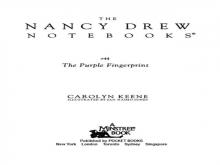 The Purple Fingerprint
The Purple Fingerprint The Picture of Guilt
The Picture of Guilt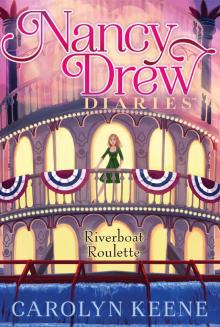 Riverboat Roulette
Riverboat Roulette The Singing Suspects
The Singing Suspects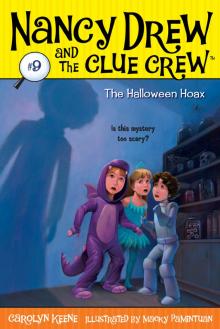 The Halloween Hoax
The Halloween Hoax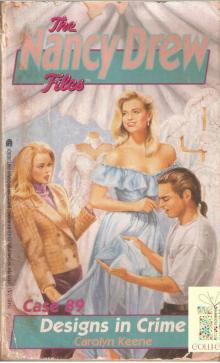 089 Designs in Crime
089 Designs in Crime The Hidden Treasures
The Hidden Treasures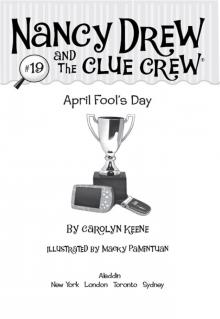 April Fool's Day
April Fool's Day The Black Widow
The Black Widow Final Notes
Final Notes The Haunting on Heliotrope Lane
The Haunting on Heliotrope Lane The Runaway Bride
The Runaway Bride The Ghost of Grey Fox Inn
The Ghost of Grey Fox Inn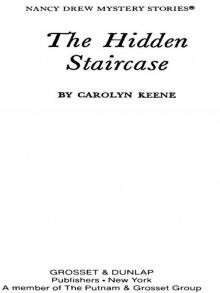 The Hidden Staircase
The Hidden Staircase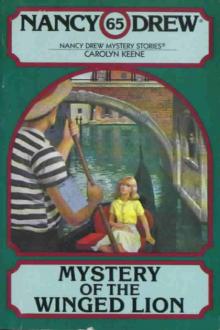 Mystery of the Winged Lion
Mystery of the Winged Lion Over the Edge
Over the Edge The Circus Scare
The Circus Scare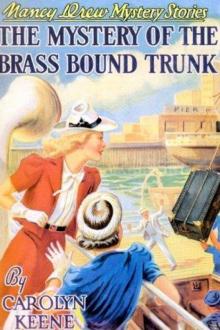 The Mystery of the Brass-Bound Trunk
The Mystery of the Brass-Bound Trunk Ski School Sneak
Ski School Sneak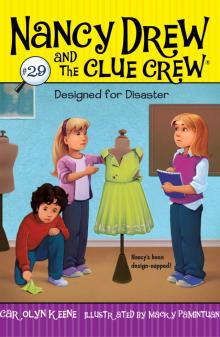 Designed for Disaster
Designed for Disaster The Clue in the Glue
The Clue in the Glue Cold as Ice
Cold as Ice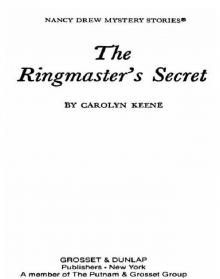 The Ringmaster's Secret
The Ringmaster's Secret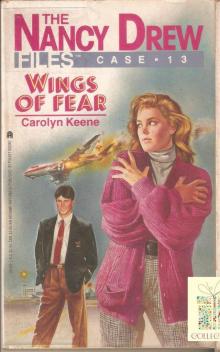 013 Wings of Fear
013 Wings of Fear The Secret of Shadow Ranch
The Secret of Shadow Ranch Not Nice on Ice
Not Nice on Ice Earth Day Escapade
Earth Day Escapade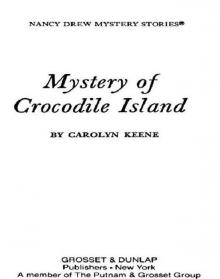 Mystery of Crocodile Island
Mystery of Crocodile Island The Bungalow Mystery
The Bungalow Mystery Power of Suggestion
Power of Suggestion The Lemonade Raid
The Lemonade Raid Model Crime
Model Crime The Lucky Horseshoes
The Lucky Horseshoes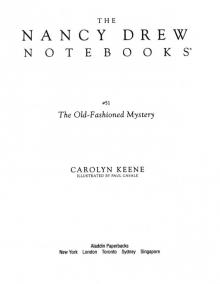 The Secret of the Old Clock
The Secret of the Old Clock The Clue at Black Creek Farm
The Clue at Black Creek Farm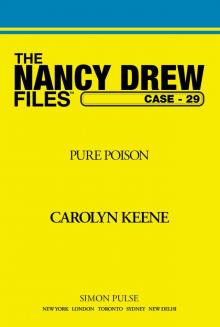 Pure Poison
Pure Poison Nobody's Business
Nobody's Business Wrong Track
Wrong Track Chick-Napped!
Chick-Napped!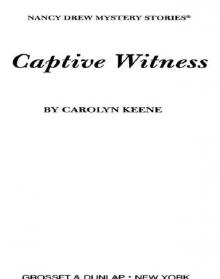 Captive Witness
Captive Witness If Looks Could Kill
If Looks Could Kill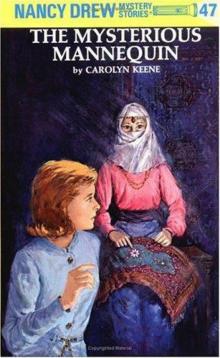 The Mysterious Mannequin
The Mysterious Mannequin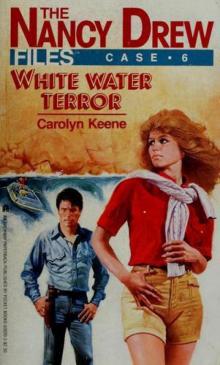 White Water Terror
White Water Terror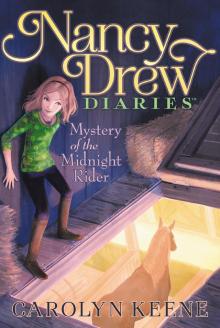 Mystery of the Midnight Rider
Mystery of the Midnight Rider Space Case
Space Case World Record Mystery
World Record Mystery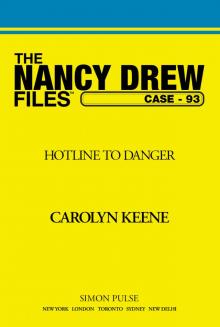 Hotline to Danger
Hotline to Danger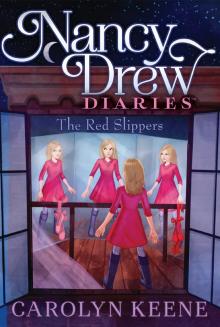 The Red Slippers
The Red Slippers A Crime for Christmas
A Crime for Christmas A Musical Mess
A Musical Mess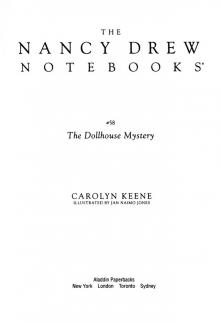 The Dollhouse Mystery
The Dollhouse Mystery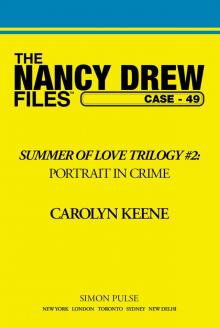 Portrait in Crime
Portrait in Crime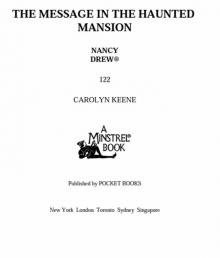 The Message in the Haunted Mansion
The Message in the Haunted Mansion Playing With Fire
Playing With Fire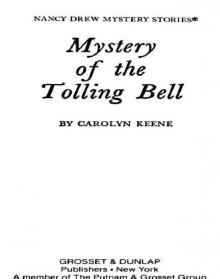 Mystery of the Tolling Bell
Mystery of the Tolling Bell Cutting Edge
Cutting Edge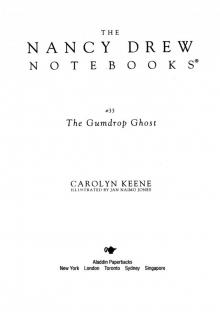 The Gumdrop Ghost
The Gumdrop Ghost The Message in the Hollow Oak
The Message in the Hollow Oak Trial by Fire
Trial by Fire Mystery at Moorsea Manor
Mystery at Moorsea Manor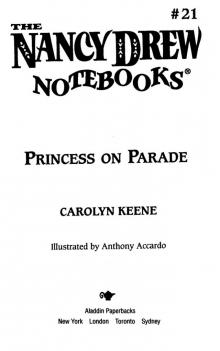 Princess on Parade
Princess on Parade The Flying Saucer Mystery
The Flying Saucer Mystery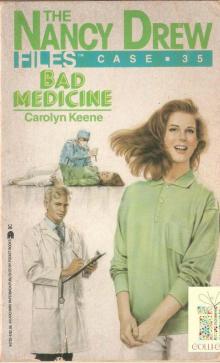 035 Bad Medicine
035 Bad Medicine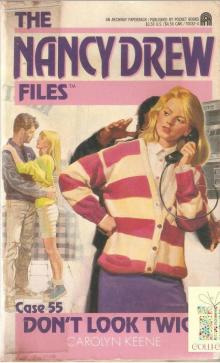 055 Don't Look Twice
055 Don't Look Twice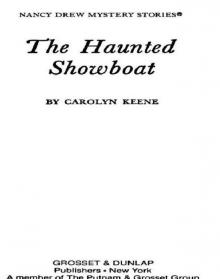 The Haunted Showboat
The Haunted Showboat Out of Bounds
Out of Bounds Choosing Sides
Choosing Sides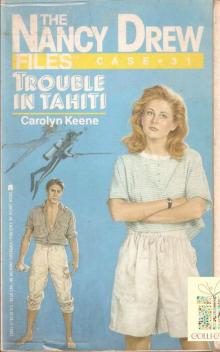 031 Trouble in Tahiti
031 Trouble in Tahiti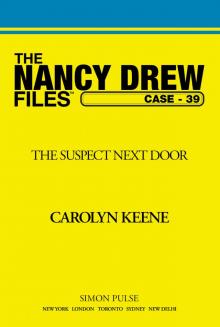 The Suspect Next Door
The Suspect Next Door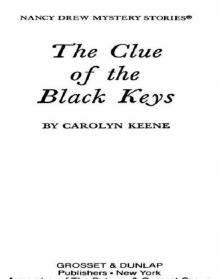 The Clue of the Black Keys
The Clue of the Black Keys The Secret Santa
The Secret Santa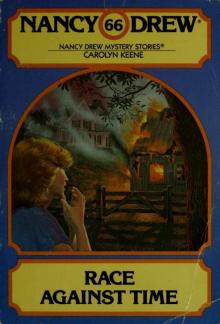 Race Against Time
Race Against Time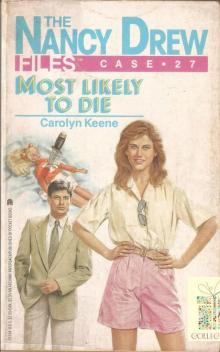 027 Most Likely to Die
027 Most Likely to Die The Cheating Heart
The Cheating Heart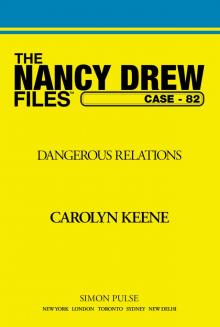 Dangerous Relations
Dangerous Relations It's No Joke!
It's No Joke!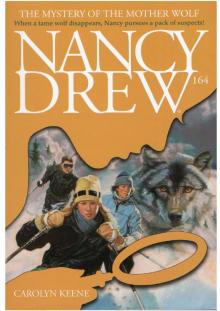 The Mystery of the Mother Wolf
The Mystery of the Mother Wolf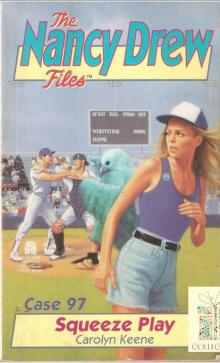 097 Squeeze Play
097 Squeeze Play Secret at Mystic Lake
Secret at Mystic Lake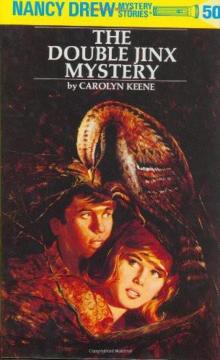 The Double Jinx Mystery
The Double Jinx Mystery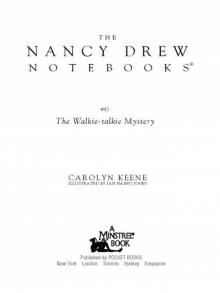 The Walkie Talkie Mystery
The Walkie Talkie Mystery The Case of the Vanishing Veil
The Case of the Vanishing Veil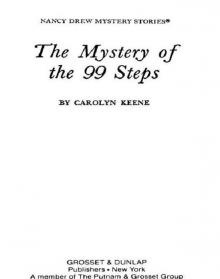 The Mystery of the 99 Steps
The Mystery of the 99 Steps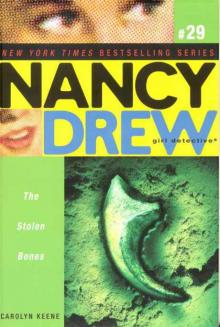 The Stolen Bones
The Stolen Bones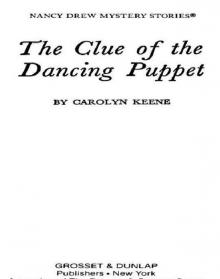 The Clue of the Dancing Puppet
The Clue of the Dancing Puppet The Sand Castle Mystery
The Sand Castle Mystery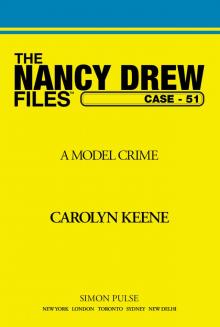 A Model Crime
A Model Crime The Witch Tree Symbol
The Witch Tree Symbol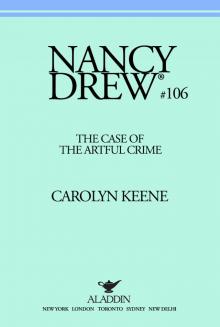 The Case of the Artful Crime
The Case of the Artful Crime Mall Madness
Mall Madness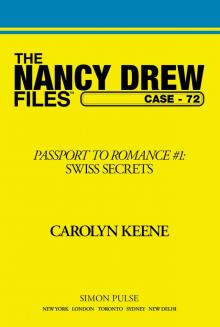 Swiss Secrets
Swiss Secrets The Magician's Secret
The Magician's Secret Tall, Dark and Deadly
Tall, Dark and Deadly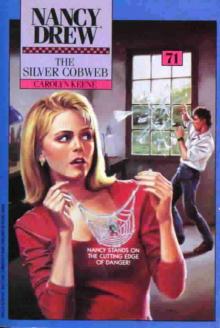 The Silver Cobweb
The Silver Cobweb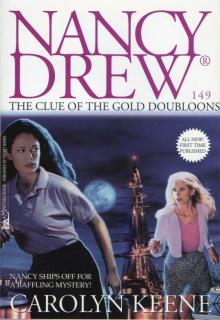 The Clue of the Gold Doubloons
The Clue of the Gold Doubloons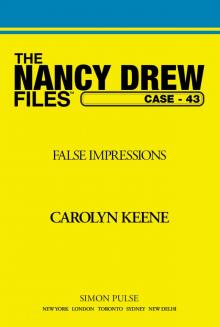 False Impressions
False Impressions Model Suspect
Model Suspect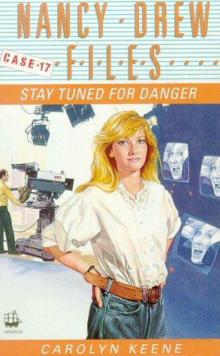 Stay Tuned for Danger
Stay Tuned for Danger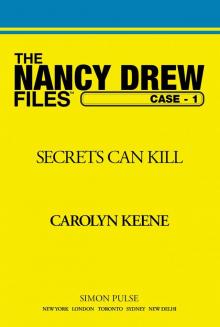 Secrets Can Kill
Secrets Can Kill The Bunny-Hop Hoax
The Bunny-Hop Hoax The Cinderella Ballet Mystery
The Cinderella Ballet Mystery The Secret at Solaire
The Secret at Solaire Trash or Treasure?
Trash or Treasure? The Missing Horse Mystery
The Missing Horse Mystery The Lost Locket
The Lost Locket The Secret of the Wooden Lady
The Secret of the Wooden Lady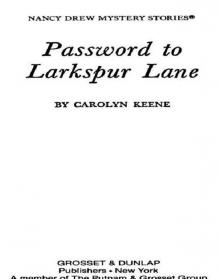 Password to Larkspur Lane
Password to Larkspur Lane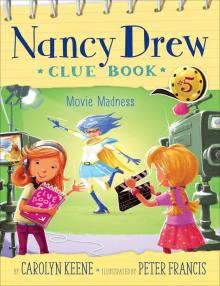 Movie Madness
Movie Madness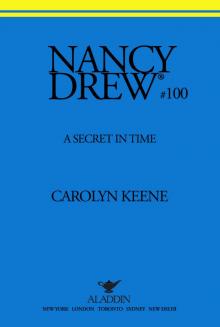 A Secret in Time
A Secret in Time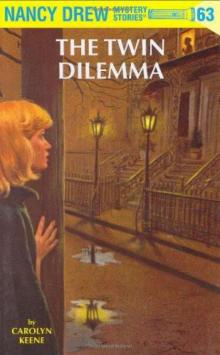 The Twin Dilemma
The Twin Dilemma Candy Is Dandy
Candy Is Dandy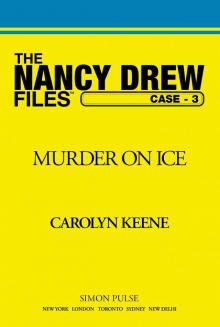 Murder on Ice
Murder on Ice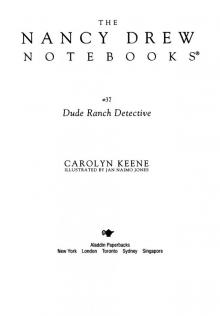 Dude Ranch Detective
Dude Ranch Detective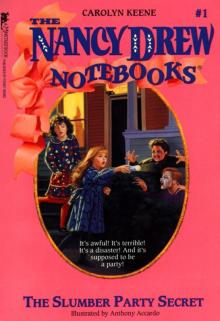 The Slumber Party Secret
The Slumber Party Secret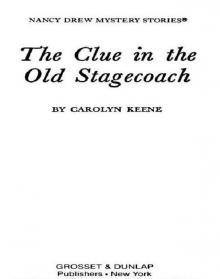 The Clue in the Old Stagecoach
The Clue in the Old Stagecoach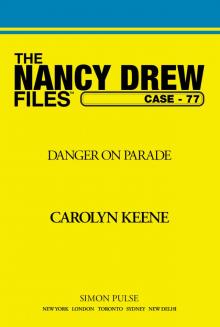 Danger on Parade
Danger on Parade Big Top Flop
Big Top Flop Strangers on a Train
Strangers on a Train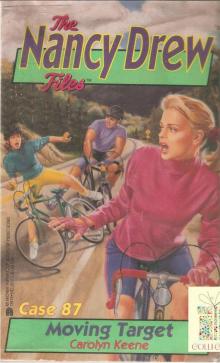 087 Moving Target
087 Moving Target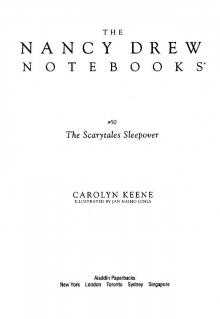 The Scarytales Sleepover
The Scarytales Sleepover The Mystery of the Fire Dragon
The Mystery of the Fire Dragon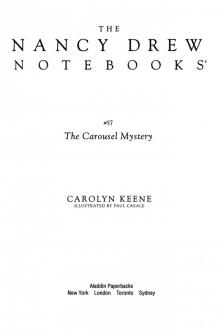 The Carousel Mystery
The Carousel Mystery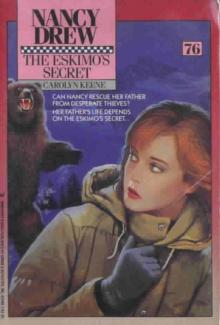 The Eskimo's Secret
The Eskimo's Secret Thrill on the Hill
Thrill on the Hill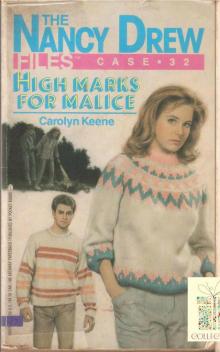 032 High Marks for Malice
032 High Marks for Malice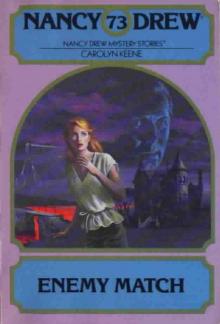 Enemy Match
Enemy Match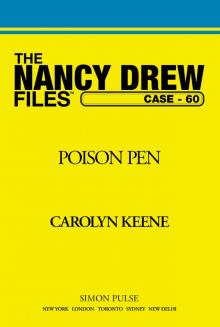 Poison Pen
Poison Pen Lights, Camera . . . Cats!
Lights, Camera . . . Cats! Lost in the Everglades
Lost in the Everglades Strike-Out Scare
Strike-Out Scare Third-Grade Reporter
Third-Grade Reporter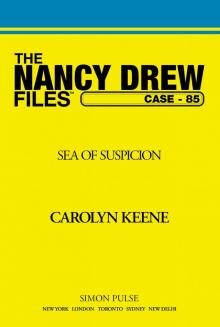 Sea of Suspicion
Sea of Suspicion Wedding Day Disaster
Wedding Day Disaster The Make-A-Pet Mystery
The Make-A-Pet Mystery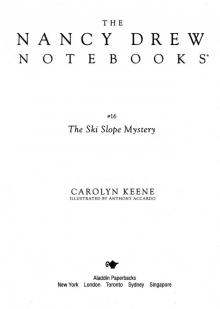 The Ski Slope Mystery
The Ski Slope Mystery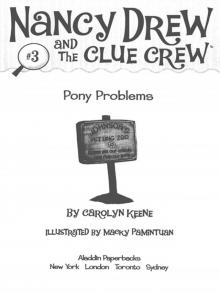 Pony Problems
Pony Problems Candy Kingdom Chaos
Candy Kingdom Chaos The Sign in the Smoke
The Sign in the Smoke The Wrong Chemistry
The Wrong Chemistry Circus Act
Circus Act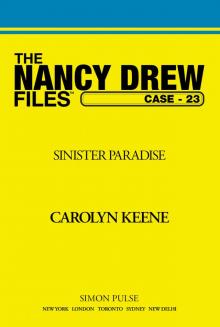 Sinister Paradise
Sinister Paradise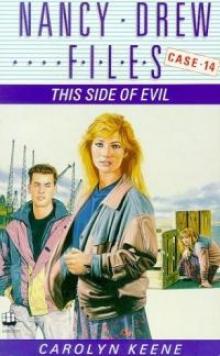 This Side of Evil
This Side of Evil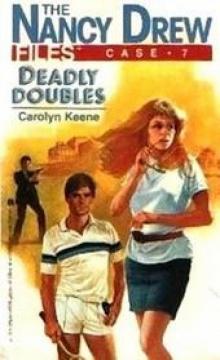 Deadly Doubles
Deadly Doubles The Mystery of the Masked Rider
The Mystery of the Masked Rider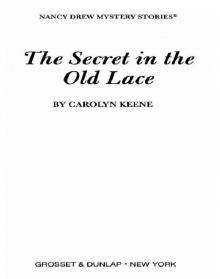 The Secret in the Old Lace
The Secret in the Old Lace The Pen Pal Puzzle
The Pen Pal Puzzle Without a Trace
Without a Trace Whose Pet Is Best?
Whose Pet Is Best?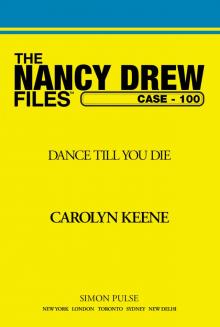 Dance Till You Die
Dance Till You Die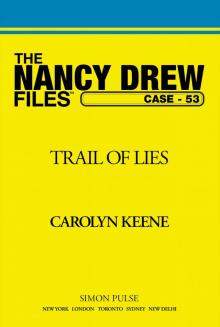 Trail of Lies
Trail of Lies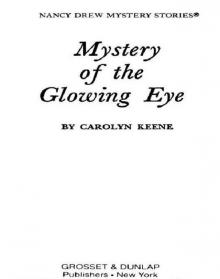 Mystery of the Glowing Eye
Mystery of the Glowing Eye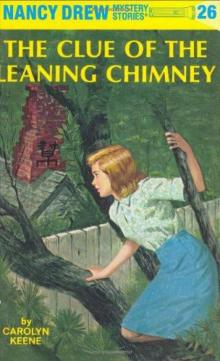 The Clue of the Leaning Chimney
The Clue of the Leaning Chimney The Crook Who Took the Book
The Crook Who Took the Book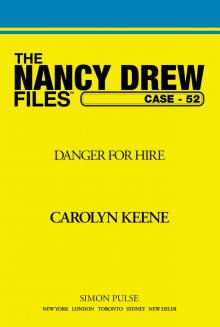 Danger for Hire
Danger for Hire Thanksgiving Thief
Thanksgiving Thief Intruder!
Intruder!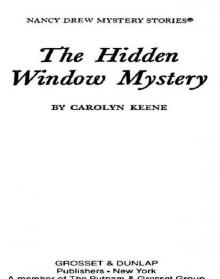 The Hidden Window Mystery
The Hidden Window Mystery Win, Place or Die
Win, Place or Die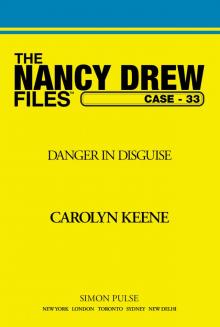 Danger in Disguise
Danger in Disguise The Best Detective
The Best Detective The Thanksgiving Surprise
The Thanksgiving Surprise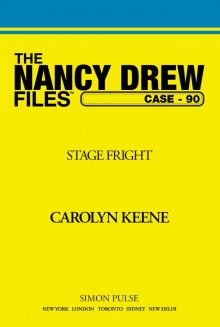 Stage Fright
Stage Fright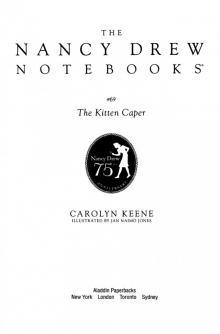 The Kitten Caper
The Kitten Caper Stolen Affections
Stolen Affections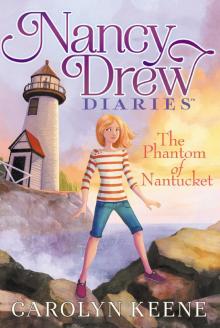 The Phantom of Nantucket
The Phantom of Nantucket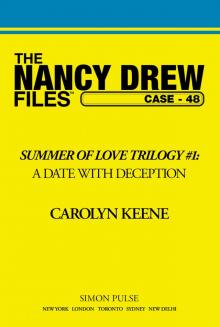 Date With Deception
Date With Deception Cooking Camp Disaster
Cooking Camp Disaster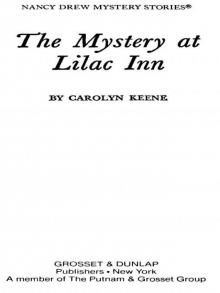 The Mystery at Lilac Inn
The Mystery at Lilac Inn Springtime Crime
Springtime Crime Action!
Action! Into Thin Air
Into Thin Air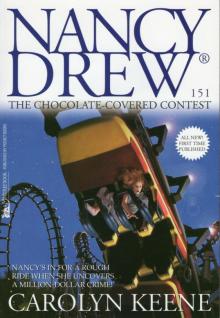 The Chocolate-Covered Contest
The Chocolate-Covered Contest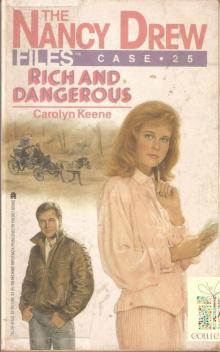 025 Rich and Dangerous
025 Rich and Dangerous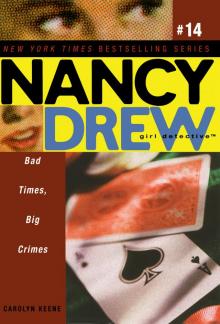 Bad Times, Big Crimes
Bad Times, Big Crimes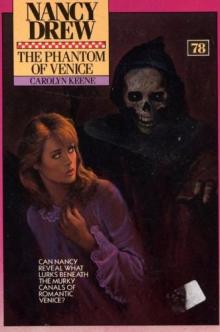 078 The Phantom Of Venice
078 The Phantom Of Venice The Stolen Kiss
The Stolen Kiss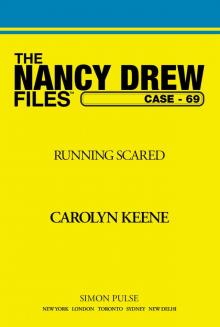 Running Scared
Running Scared The Wedding Gift Goof
The Wedding Gift Goof Time Thief
Time Thief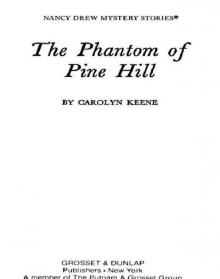 The Phantom of Pine Hill
The Phantom of Pine Hill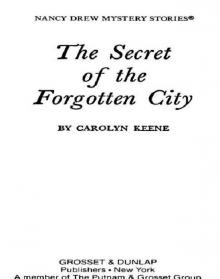 The Secret of the Forgotten City
The Secret of the Forgotten City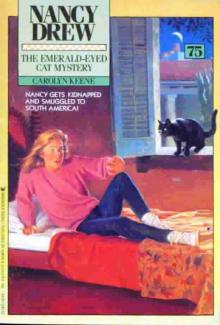 The Emerald-Eyed Cat Mystery
The Emerald-Eyed Cat Mystery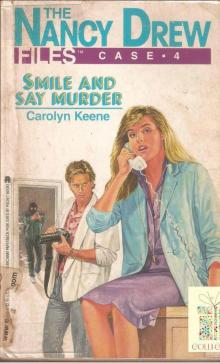 004 Smile and Say Murder
004 Smile and Say Murder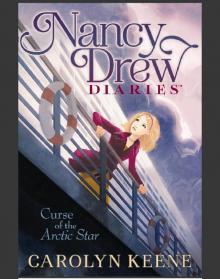 Curse of the Arctic Star
Curse of the Arctic Star Dinosaur Alert!
Dinosaur Alert!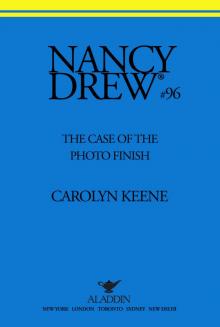 The Case of the Photo Finish
The Case of the Photo Finish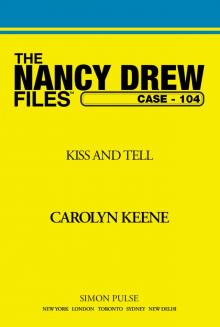 Kiss and Tell
Kiss and Tell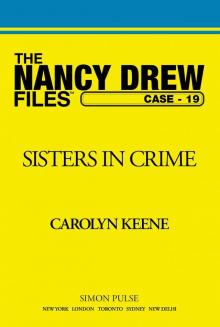 Sisters in Crime
Sisters in Crime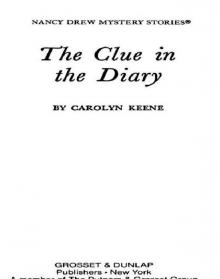 The Clue in the Diary
The Clue in the Diary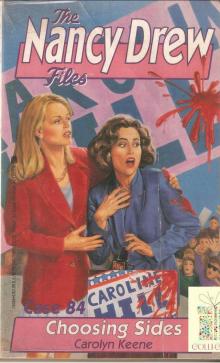 084 Choosing Sides
084 Choosing Sides Haunting of Horse Island
Haunting of Horse Island Vanishing Act
Vanishing Act The Big Island Burglary
The Big Island Burglary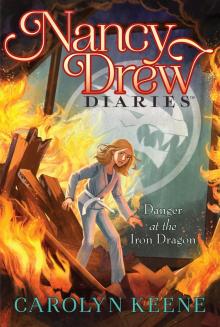 Danger at the Iron Dragon
Danger at the Iron Dragon Pets on Parade
Pets on Parade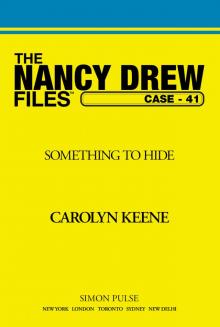 Something to Hide
Something to Hide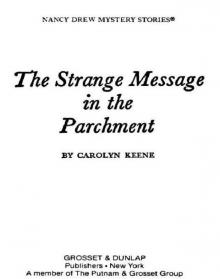 The Strange Message in the Parchment
The Strange Message in the Parchment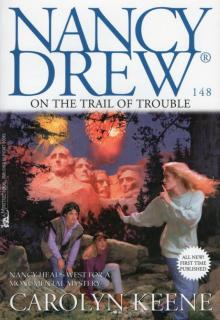 On the Trail of Trouble
On the Trail of Trouble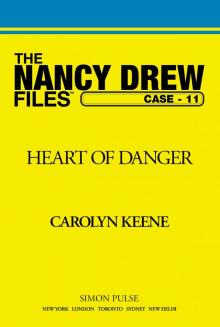 Heart of Danger
Heart of Danger The Snowman Surprise
The Snowman Surprise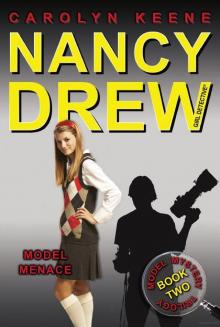 Model Menace
Model Menace Flower Power
Flower Power The Great Goat Gaffe
The Great Goat Gaffe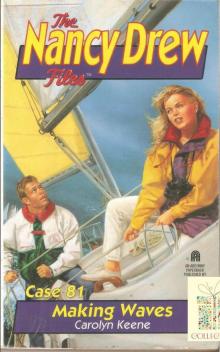 081 Making Waves
081 Making Waves Famous Mistakes
Famous Mistakes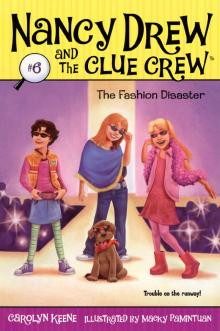 The Fashion Disaster
The Fashion Disaster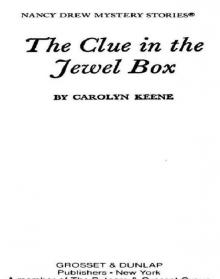 The Clue in the Jewel Box
The Clue in the Jewel Box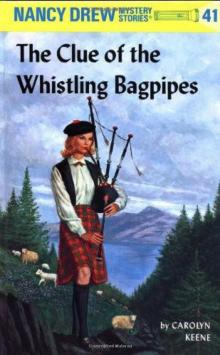 The Clue of the Whistling Bagpipes
The Clue of the Whistling Bagpipes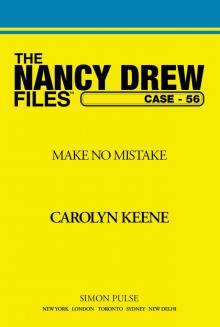 Make No Mistake
Make No Mistake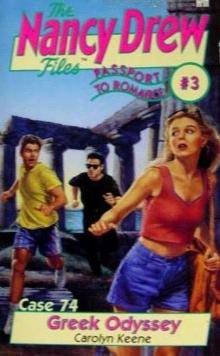 Greek Odyssey
Greek Odyssey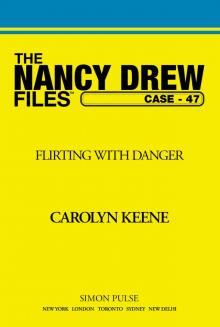 Flirting With Danger
Flirting With Danger Double Take
Double Take Trouble Takes the Cake
Trouble Takes the Cake Turkey Trouble
Turkey Trouble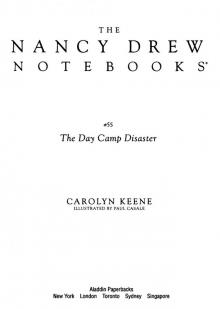 The Day Camp Disaster
The Day Camp Disaster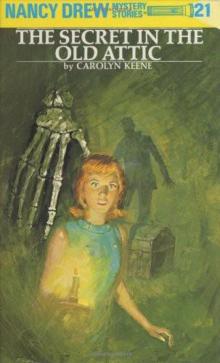 The Secret in the Old Attic
The Secret in the Old Attic The Baby-Sitter Burglaries
The Baby-Sitter Burglaries Recipe for Murder
Recipe for Murder The Secret of the Scarecrow
The Secret of the Scarecrow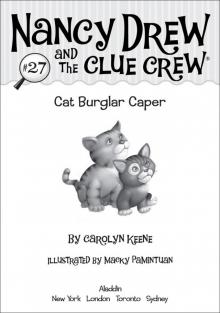 Cat Burglar Caper
Cat Burglar Caper Turkey Trot Plot
Turkey Trot Plot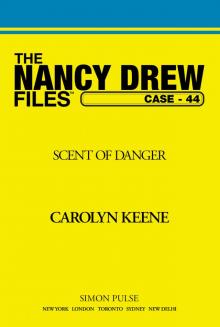 Scent of Danger
Scent of Danger The Clue in the Crossword Cipher
The Clue in the Crossword Cipher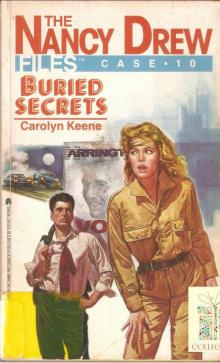 010 Buried Secrets
010 Buried Secrets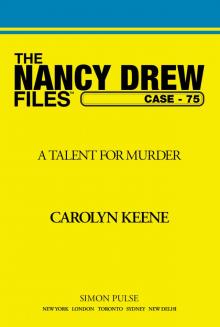 A Talent for Murder
A Talent for Murder The Triple Hoax
The Triple Hoax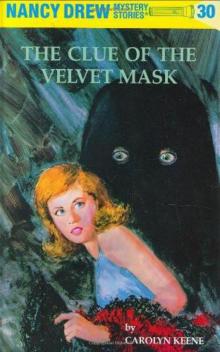 The Clue of the Velvet Mask
The Clue of the Velvet Mask Last Lemonade Standing
Last Lemonade Standing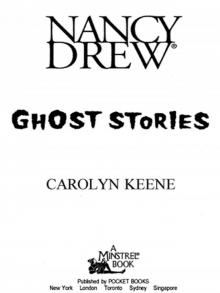 The Ghost of Blackwood Hall
The Ghost of Blackwood Hall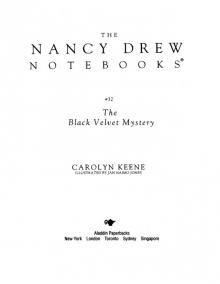 The Black Velvet Mystery
The Black Velvet Mystery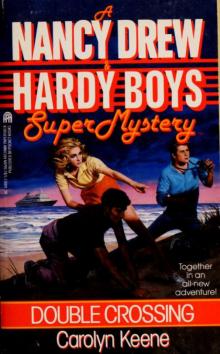 Double Crossing
Double Crossing Hidden Meanings
Hidden Meanings Trouble at Camp Treehouse
Trouble at Camp Treehouse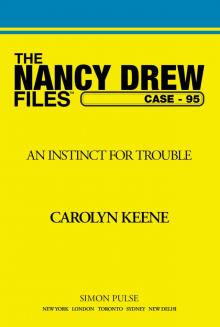 An Instinct for Trouble
An Instinct for Trouble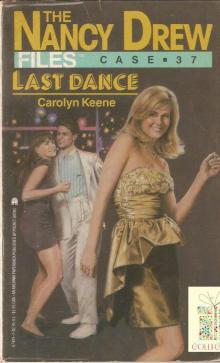 037 Last Dance
037 Last Dance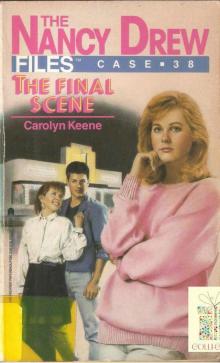 038 The Final Scene
038 The Final Scene Duck Derby Debacle
Duck Derby Debacle The Pumpkin Patch Puzzle
The Pumpkin Patch Puzzle Hidden Pictures
Hidden Pictures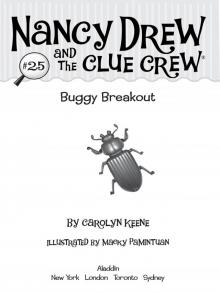 Buggy Breakout
Buggy Breakout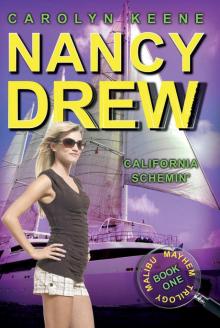 California Schemin'
California Schemin'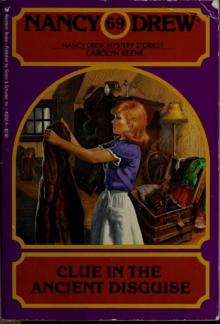 Clue in the Ancient Disguise
Clue in the Ancient Disguise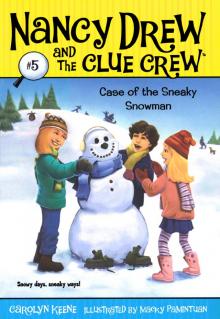 Case of the Sneaky Snowman
Case of the Sneaky Snowman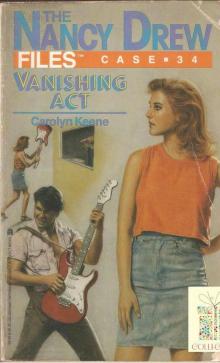 034 Vanishing Act
034 Vanishing Act A Script for Danger
A Script for Danger The Flower Show Fiasco
The Flower Show Fiasco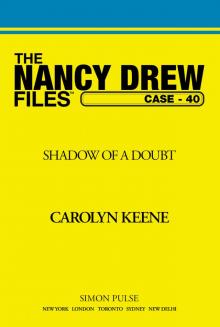 Shadow of a Doubt
Shadow of a Doubt Easy Marks
Easy Marks Alien in the Classroom
Alien in the Classroom Ghost Stories, #2 (Nancy Drew)
Ghost Stories, #2 (Nancy Drew) The Bike Race Mystery
The Bike Race Mystery False Pretenses
False Pretenses The Kachina Doll Mystery
The Kachina Doll Mystery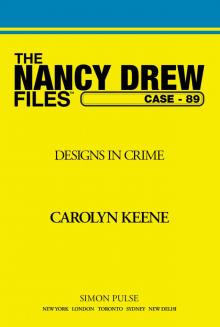 Designs in Crime
Designs in Crime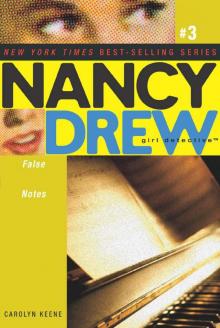 False Notes
False Notes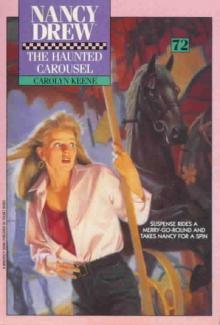 The Haunted Carousel
The Haunted Carousel Bad Day for Ballet
Bad Day for Ballet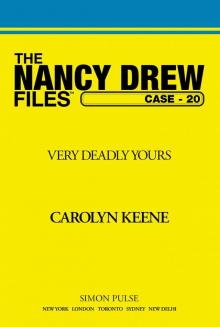 Very Deadly Yours
Very Deadly Yours The Fine-Feathered Mystery
The Fine-Feathered Mystery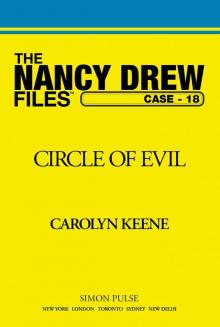 Circle of Evil
Circle of Evil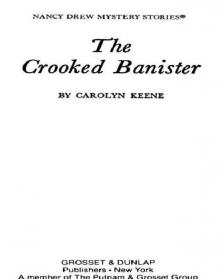 The Crooked Banister
The Crooked Banister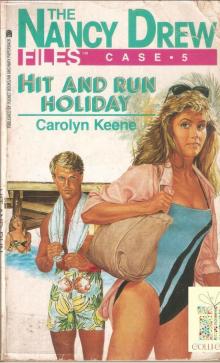 005 Hit and Run Holiday
005 Hit and Run Holiday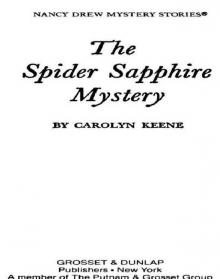 The Spider Sapphire Mystery
The Spider Sapphire Mystery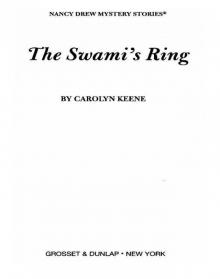 The Swami's Ring
The Swami's Ring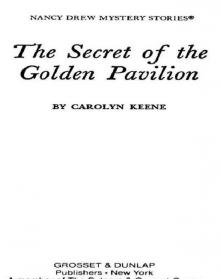 The Secret of the Golden Pavilion
The Secret of the Golden Pavilion Recipe for Trouble
Recipe for Trouble Betrayed by Love
Betrayed by Love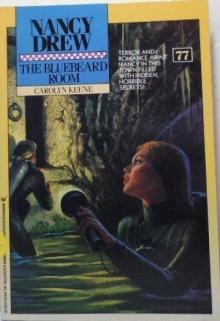 The Bluebeard Room
The Bluebeard Room Sweet Revenge
Sweet Revenge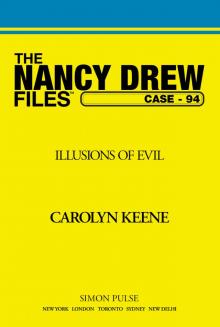 Illusions of Evil
Illusions of Evil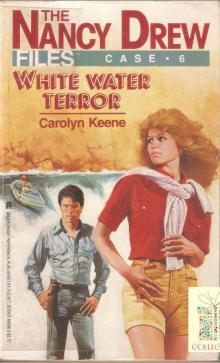 006 White Water Terror
006 White Water Terror High Risk
High Risk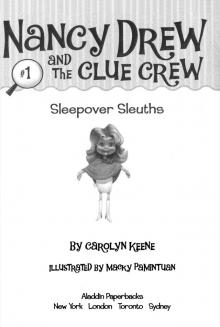 Sleepover Sleuths
Sleepover Sleuths The Clue on the Crystal Dove
The Clue on the Crystal Dove The Stolen Unicorn
The Stolen Unicorn The Professor and the Puzzle
The Professor and the Puzzle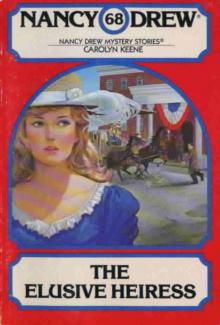 The Elusive Heiress
The Elusive Heiress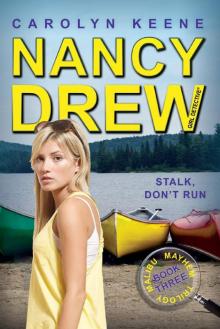 Stalk, Don't Run
Stalk, Don't Run The Mystery at the Moss-Covered Mansion
The Mystery at the Moss-Covered Mansion The Tortoise and the Scare
The Tortoise and the Scare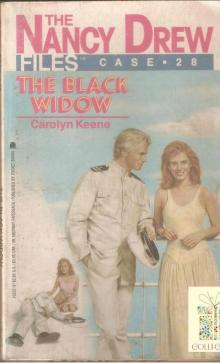 028 The Black Widow
028 The Black Widow Big Worry in Wonderland
Big Worry in Wonderland Crosscurrents
Crosscurrents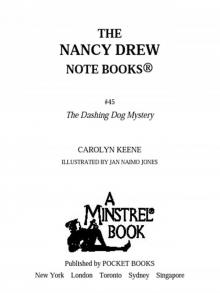 The Dashing Dog Mystery
The Dashing Dog Mystery Fatal Attraction
Fatal Attraction The Clue of the Broken Locket
The Clue of the Broken Locket The Stinky Cheese Surprise
The Stinky Cheese Surprise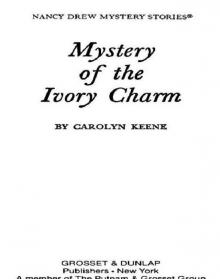 Mystery of the Ivory Charm
Mystery of the Ivory Charm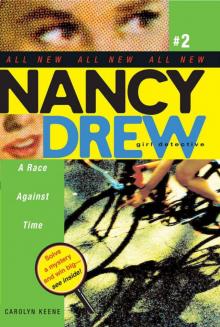 A Race Against Time
A Race Against Time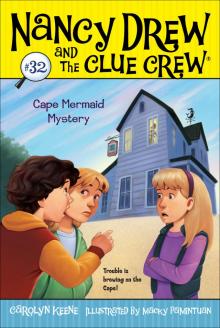 Cape Mermaid Mystery
Cape Mermaid Mystery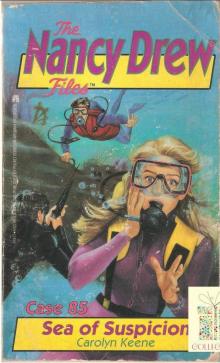 085 Sea of Suspicion
085 Sea of Suspicion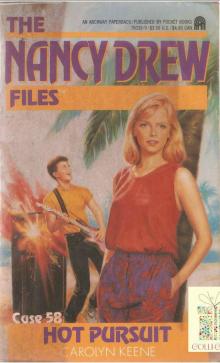 058 Hot Pursuit
058 Hot Pursuit The Secret in the Spooky Woods
The Secret in the Spooky Woods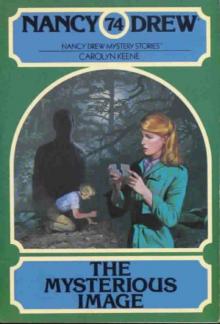 The Mysterious Image
The Mysterious Image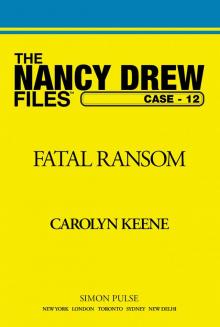 Fatal Ransom
Fatal Ransom The Stolen Show
The Stolen Show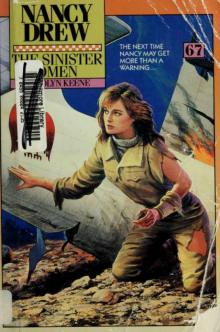 The Sinister Omen
The Sinister Omen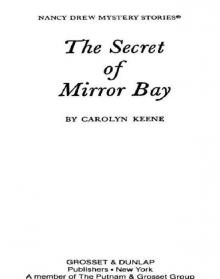 The Secret of Mirror Bay
The Secret of Mirror Bay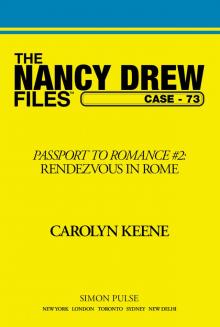 Rendezvous in Rome
Rendezvous in Rome The Perfect Plot
The Perfect Plot The Mystery of Misty Canyon
The Mystery of Misty Canyon Nancy's Mysterious Letter
Nancy's Mysterious Letter The Snow Queen's Surprise
The Snow Queen's Surprise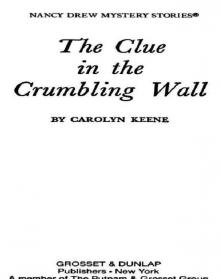 The Clue in the Crumbling Wall
The Clue in the Crumbling Wall Dare at the Fair
Dare at the Fair Scream for Ice Cream
Scream for Ice Cream A Star Witness
A Star Witness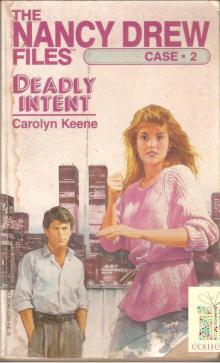 002 Deadly Intent
002 Deadly Intent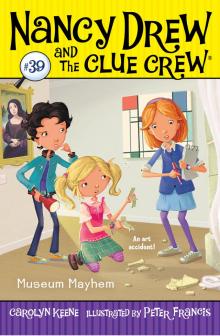 Museum Mayhem
Museum Mayhem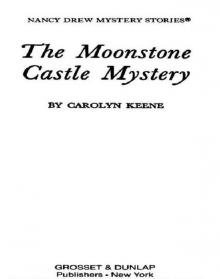 The Moonstone Castle Mystery
The Moonstone Castle Mystery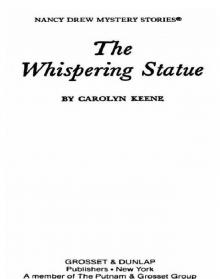 The Whispering Statue
The Whispering Statue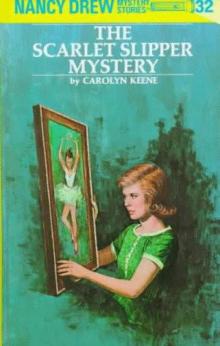 The Scarlet Slipper Mystery
The Scarlet Slipper Mystery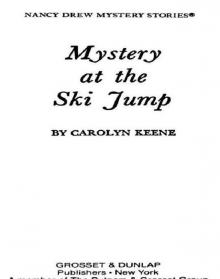 Mystery at the Ski Jump
Mystery at the Ski Jump Hot Pursuit
Hot Pursuit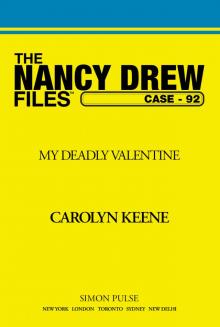 My Deadly Valentine
My Deadly Valentine The Silent Suspect
The Silent Suspect Deep Secrets
Deep Secrets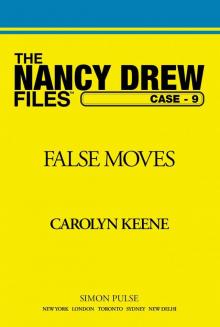 False Moves
False Moves The Zoo Crew
The Zoo Crew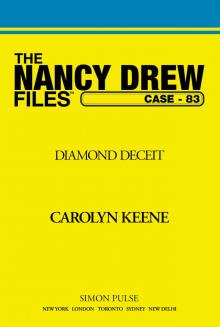 Diamond Deceit
Diamond Deceit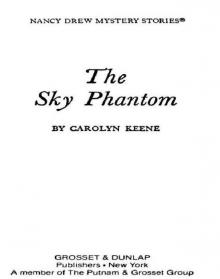 The Sky Phantom
The Sky Phantom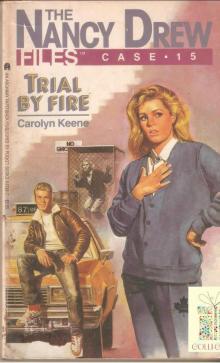 015 Trial by Fire
015 Trial by Fire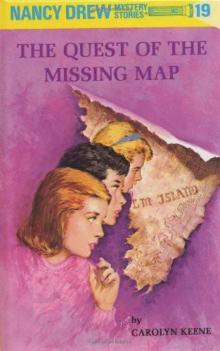 The Quest of the Missing Map
The Quest of the Missing Map Babysitting Bandit
Babysitting Bandit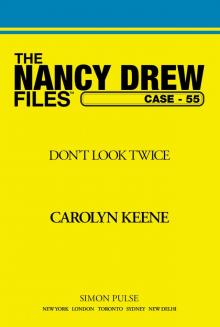 Don't Look Twice
Don't Look Twice Never Say Die
Never Say Die The Soccer Shoe Clue
The Soccer Shoe Clue Pool Party Puzzler
Pool Party Puzzler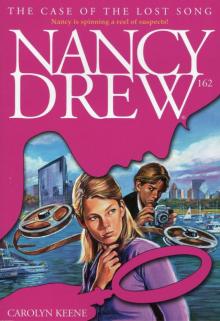 The Case of the Lost Song
The Case of the Lost Song The Apple Bandit
The Apple Bandit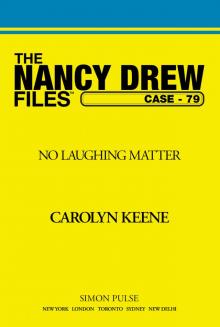 No Laughing Matter
No Laughing Matter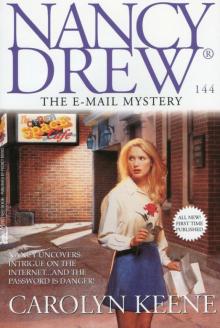 The Thirteenth Pearl
The Thirteenth Pearl Sabotage at Willow Woods
Sabotage at Willow Woods Butterfly Blues
Butterfly Blues Model Crime 1
Model Crime 1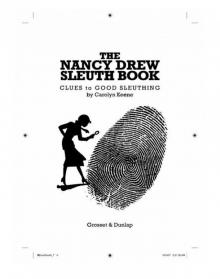 The Nancy Drew Sleuth Book
The Nancy Drew Sleuth Book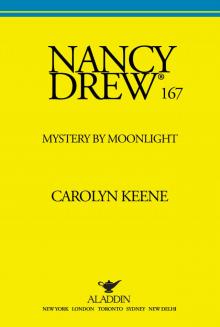 Mystery by Moonlight
Mystery by Moonlight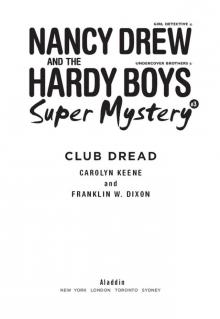 Club Dread
Club Dread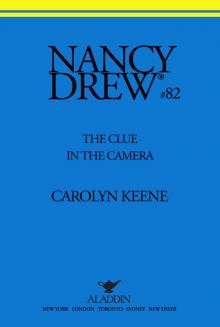 The Clue in the Camera
The Clue in the Camera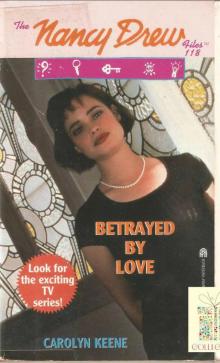 118 Betrayed By Love
118 Betrayed By Love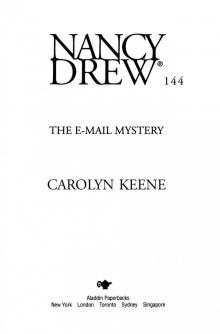 The E-Mail Mystery (Nancy Drew Book 144)
The E-Mail Mystery (Nancy Drew Book 144)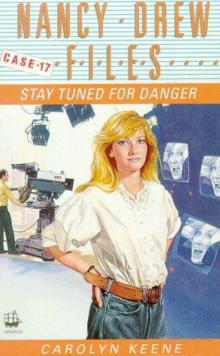 Stay Tuned for Danger: Circle of Evil
Stay Tuned for Danger: Circle of Evil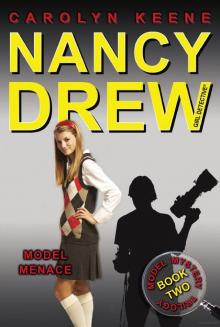 Model Menace 2
Model Menace 2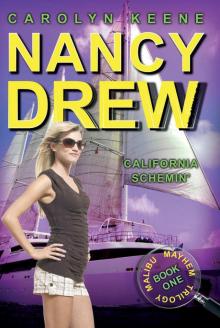 California Schemin': Book One in the Malibu Mayhem Trilogy
California Schemin': Book One in the Malibu Mayhem Trilogy Zoo Clue (Nancy Drew Notebooks)
Zoo Clue (Nancy Drew Notebooks)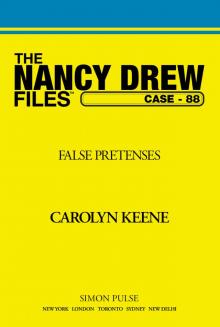 False Pretences
False Pretences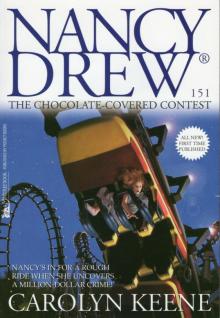 151 The Chocolate-Covered Contest
151 The Chocolate-Covered Contest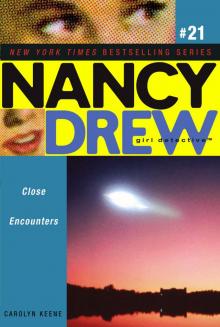 Close Encounters
Close Encounters The Emeral-Eyed Cat Mystery
The Emeral-Eyed Cat Mystery Boo Crew
Boo Crew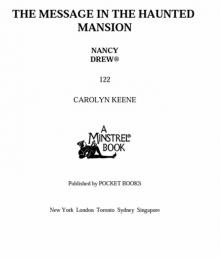 The Message in the Haunted Mansion (Nancy Drew Book 122)
The Message in the Haunted Mansion (Nancy Drew Book 122) A Nancy Drew Christmas
A Nancy Drew Christmas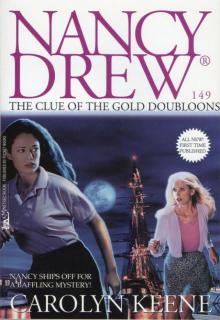 149 The Clue Of The Gold Doubloons
149 The Clue Of The Gold Doubloons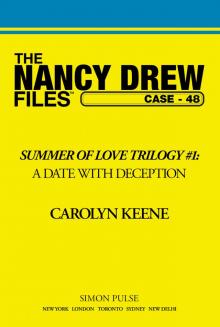 A Date with Deception
A Date with Deception 101 The Picture of Guilt
101 The Picture of Guilt The Secret in the Spooky Woods (Nancy Drew Notebooks Book 62)
The Secret in the Spooky Woods (Nancy Drew Notebooks Book 62) The Wrong Track
The Wrong Track Lights! Camera! Clues!
Lights! Camera! Clues! The Vanishing Act
The Vanishing Act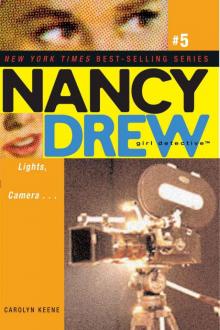 Lights, Camera . . .
Lights, Camera . . . Model Suspect 3
Model Suspect 3 160 The Clue On The Crystal Dove
160 The Clue On The Crystal Dove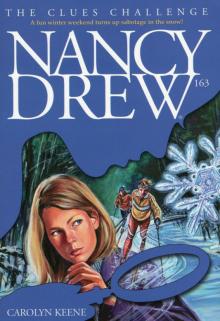 163 The Clues Challenge
163 The Clues Challenge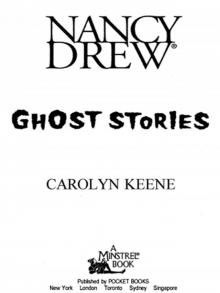 Ghost Stories (Nancy Drew)
Ghost Stories (Nancy Drew) Space Case (Nancy Drew Notebooks Book 61)
Space Case (Nancy Drew Notebooks Book 61)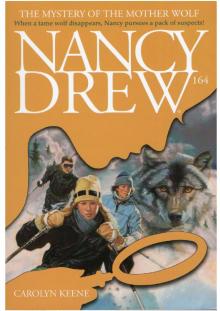 164 The Mystery Of The Mother Wolf
164 The Mystery Of The Mother Wolf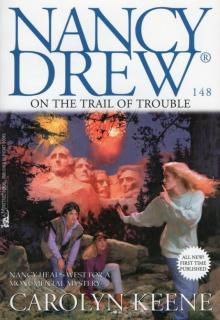 148 On The Trail Of Trouble
148 On The Trail Of Trouble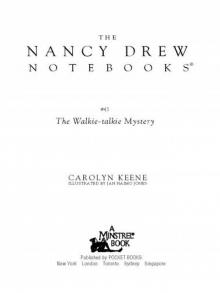 The Walkie-Talkie Mystery
The Walkie-Talkie Mystery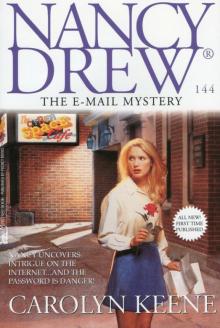 The E-Mail Mystery
The E-Mail Mystery Intruder (Nancy Drew (All New) Girl Detective)
Intruder (Nancy Drew (All New) Girl Detective)![The Stolen Relic [Nancy Drew Girl Detective 007] Read online](http://i1.bookreadfree.com/i2/04/11/the_stolen_relic_nancy_drew_girl_detective_007_preview.jpg) The Stolen Relic [Nancy Drew Girl Detective 007]
The Stolen Relic [Nancy Drew Girl Detective 007] 105 Stolen Affections
105 Stolen Affections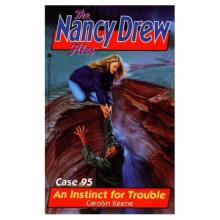 An Instict for Trouble
An Instict for Trouble 161 Lost In The Everglades
161 Lost In The Everglades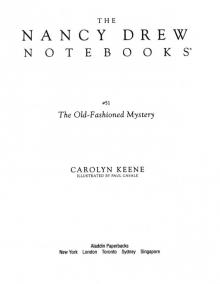 The Old-Fashioned Mystery
The Old-Fashioned Mystery Perfect Plot
Perfect Plot